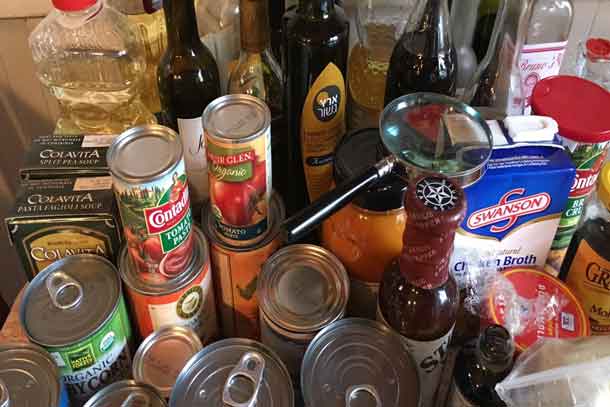These are unprecedented times for all of us. And frankly, we’re all trying to figure out how to deal with our new lives, even if we know it will only last for a while.
These strange days mean normalcy is not an option, for the safety of us all.
Public health officials and political leaders in Canada have done an outstanding job thus far.
Media members have been miracle workers, keeping the Canadian public well informed, even making content open access. Thank goodness for them.
The not-so-graceful part of our collective journey to cope with this global threat has been the panic buying we’ve seen everywhere. People have been impulsively, irrationally emptying shelves.
We’re complicated beings and it’s hard to judge anyone since we’re in uncharted waters. People manage anxiety and risks in their own way. And as a society, we will go through cycles of emotions, compulsions and foolishness. We’re in the worst of it but it will end eventually.
With quarantines, cancellations, closures and social distancing, home is – more than ever – the safest place to be.
One positive could be that everyone can spend more time in the kitchen, a place where fewer Canadians have spent time in recent years.
The evidence suggesting Canadians are spending less time in the kitchen is mounting, despite record cookbook sales. Canadians buy almost $100 million worth of cookbooks and food-related literature every year, but sales of tools and appliances used for cooking, like spatulas, mixers and cooking bowls, have dropped steadily every year over the last five years. In 2019, sales for appliances and other items normally used in private kitchens dropped by two per cent.
The average Canadian can now watch over 250 hours of cooking or food-related shows a week on television. A few networks are solely devoted to food.
Still, cooking is just a fantasy for a growing number of Canadians.
Time has been unkind to kitchens.
A recent survey by Dalhousie University shows that of people born before 1946, 95 per cent ate meals prepared by parents or a caregiver at home when growing up. That percentage dropped significantly over the years.
Millennials were not exposed to home-cooked meals as much, nor were generation Z members. About 64 per cent of millennials regularly ate home-cooked meals when growing up, compared to 55 per cent for gen Z. Compared to the older generation, those are whopping drops.
So younger generations have a different appreciation for the kitchen and how food is prepared and consumed at home.
But the COVID-19 pandemic could make younger generations more familiar with the kitchen.
More time at home can benefit us all. In the same survey conducted by Dalhousie, 68.4 per cent of Canadians polled said they would like to spend more time preparing food at home. With the current public safety measures, they’ll get their wish.
Buying and reading a cookbook is like watching a good movie. We can project ourselves into the story, imagine we can do things we never thought possible, making us dream.
Some modern cookbooks are masterpieces, works of art. But most cookbooks have been used as coffee table books or re-gifted and that’s a shame.
But COVID-19 could change everything.
As we’re forced to spend more time at home, and with provisions safely nestled in cupboards and freezers, the opportunity to revisit our kitchens daily has never been so good.
Equipped with unread cookbooks and underused kitchen tools, Canadians can now see some action in the kitchen.
We will get through this by sticking together and listening to our competent public health officials.
In the meantime, let’s dust off our cookbooks and get reacquainted with the one room that can truly be considered the heart of anyone’s home: the kitchen.
-
Dr. Sylvain Charlebois is senior director of the agri-food analytics lab and a professor in food distribution and policy at Dalhousie University.

